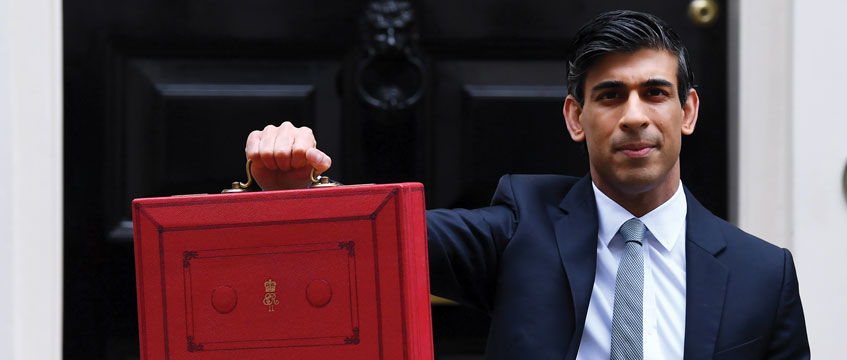COMMENT Will they, or won’t they? With the government gearing up for this week’s Budget, and rumours of business rates relief (or even reform!) circulating, thousands of businesses await a solution to the broken system with bated breath.
Of course, the relief offered since the outbreak of the pandemic has been commendable, but what we need now is long-term change. The system still doesn’t work and is in fact hampering business recovery. In recent weeks, the Confederation of British Industry, MPs on both sides of the parliamentary divide and 41 leading trade groups have piled pressure on the government to overhaul the business rates system. How much longer will it wait before answering their calls?
Don’t increase UBR
Worryingly, rather than reform or relief, rumours of a 3% increase to uniform business rates have been circulating. This would be a disaster for businesses still trying to recoup cash lost during the pandemic, and could cost them up to an eye-watering £900m. With recent figures showing that UK retail sales dropped in September for the fifth consecutive month, it is clear that large sections of the economy have still not recovered. Any increase in rates poses the risk of making relief offered through the business rates holiday during the pandemic completely redundant.
The UK’s UBR is far higher than any other country in Europe, so instead of an increase what we need as a minimum is a freeze on UBR – and, ideally, the rate to be lowered from 51.2p in every £1 to about 30p.
Extend relief to key sectors
In the March spending review, the government launched a £1.5bn rates relief fund. However, businesses in the retail, hospitality and leisure sectors are still yet to see a penny. Instead of the second unveiling of a scheme already in place, which has had little effect to date, the chancellor should focus on wider and direct support to businesses.
Of course, we must give credit where credit is due: some of the relief offered by the government in the past 19 months has been a saving grace for thousands of small retailers. However, with many support schemes having ended, the government cannot withdraw business rates support now. A helpful solution would be to extend this relief by six months for any retailers with a rateable value of less than £100,000, with no further restrictions.
In addition, many column inches have been filled by evaluations of the pandemic’s devastating effects on the office market. Yet, office-based businesses have been forced to pay full rates since March 2020. Many landlords are still struggling with high vacancy rates. Shouldn’t now be the time for some kind of relief or support? A ghostly City will not be conducive to a resurgence of the economy and, with legislation due to be passed shortly preventing offices from appealing rates paid during the pandemic, the government only has a small window to take action.
Finally, to support these sectors, empty rates relief must be addressed. While landlords currently benefit from three months of empty rates relief, this is simply not long enough to find a new tenant in the current environment. The government should consider extending this to six months to give landlords enough time to fill vacant properties.
Reform the wider system
Ultimately, the reality is that the rigid and outdated structure of the business rates system itself accounts for the current fragility of many businesses; in many ways, the pandemic has only served to highlight its poor structure.
Under the current system, many businesses are paying too much for their rates, and altering rates is an extremely cumbersome process due to the underfunded Valuation Office Agency. It makes the business rates process awkward and expensive for creative, multi-use businesses, such as hair salons with champagne bars, requiring owners to change the official “use” of their property through the overcomplex and slow “check, challenge and appeal” process. The government needs to streamline this CCA process, remove the checkpoints and waiting periods – which seem to be designed to be disheartening – and provide further resource to the critically underfunded VOA.
Furthermore, downward transition relief has a devastating impact on the North and the Midlands. Falling rents are halving the rateable value of shops, but retailers are still having to pay full rates for a considerable period of time. Downward transition relief should therefore be abolished with upward transition remaining, so businesses can pause and re-calibrate before an increase. It seems grossly unfair to keep struggling retailers on high rates.
The upcoming rates review has been postponed for too long. None of these issues are new, and now is the time to act.
The Budget
This week’s Spending Review presents the Chancellor with a perfect opportunity to tackle a problem that has plagued UK businesses through the pandemic and beyond. Ultimately, an urgent overhaul of the system is required if we hope to get retailers back on their feet.











